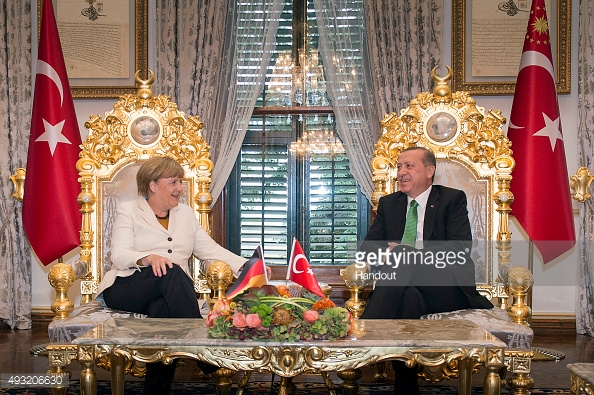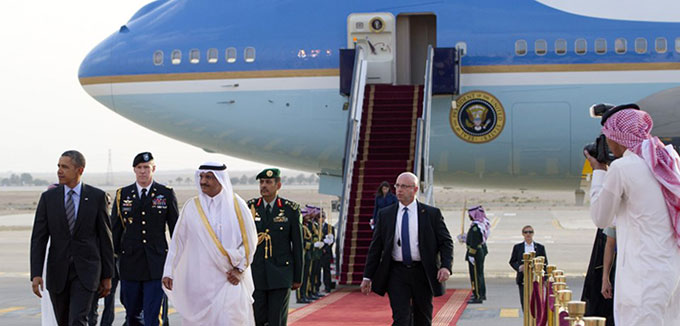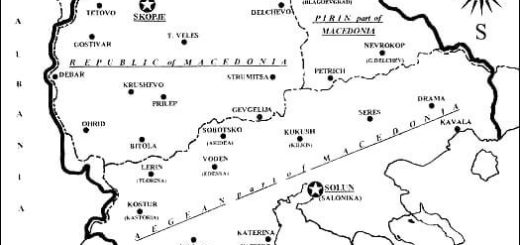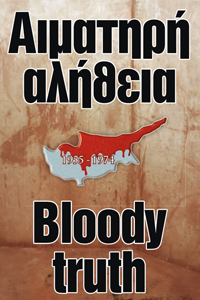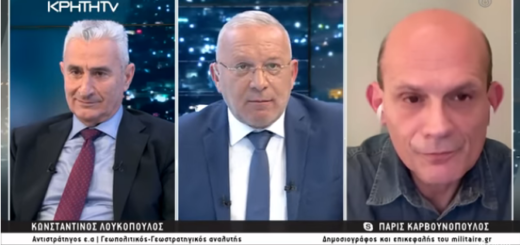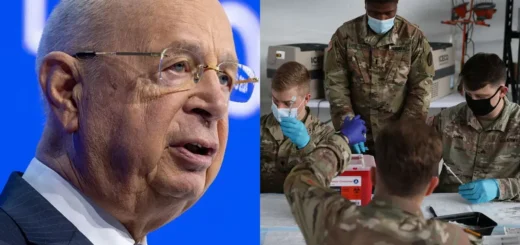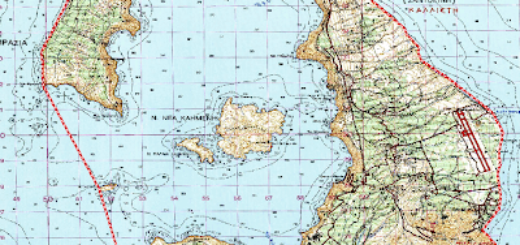Δύο κείμενα και δύο σχολιασμοί. I) Η κηδεμονία του Αλέξη από την Angela παραλύει την εξωτερική πολιτική!... II) With Putin in Syria, Allies Question Obama’s Resolve.
I
Σχολιασμός
Στην ανάρτηση με τίτλο: "Πεδία αποσταθεροποίησης και Ελλάδα", έγραφα πριν μήνες (6/3/2015) πως -ενδεχομένως να- βρισκόμαστε σε μια φάση μετάβασης προς το «ΕλλαδοΡωμέϊκο Σαντζάκι (επαρχία) του αναδιαμορφωμένου ΝεοΟθωμανικοΤουρκικού αυτοκρατορικού χώρου υπό τη Γερμανία».
Και τότε, όπως και τώρα, ασχολούμασταν «με την αριστερά και με τη δεξιά» και την πολιτική ως κουτσομπολιό (τι είπε ο τάδε υφυπουργός). Όταν δεν βλέπεις τη μεγάλη εικόνα, φτάνεις να παγιδεύεσαι στη μικρή (το κουτσομπολιό ως «πολιτικός» σχολιασμός και ως βολικός στρουθοκαμηλισμός). Αυτό βέβαια, πρώτον, αρμόζει σε μια υποτελή -και αποικιοποιούμενη- πολιτεία (η οποία ετεροκαθορίζεται), δεύτερον, συμφέρει τους εγχώριους προκειμένου να πουν μόλις οδηγηθούν τα πράγματα σε αδιέξοδο ''και τι να κάναμε;'' (κλασική τακτική της εγχώριας ανευθυνότητας, ανεπάρκειας και εξάρτησης και του εγχώριου κομπογιαννιτισμού), και, τρίτον και σπουδαιότερον, συμφέρει τους εξωτερικούς σου κηδεμόνες (άσε τους ιθαγενείς να ασχολούνται μόνο με τον «μικρό -εσωτερικό- χώρο», τις «μεταρρυθμίσεις», με τα πρωτοσέλιδα των εφημερίδων και τις αντι-ειδήσεις των καναλιών -ρίξε τους στάχτη στα μάτια- και η τύχη τους δουλεύει...).
.~`~.
Η κηδεμονία του Αλέξη από την Angela παραλύει την εξωτερική πολιτική!...
Προφανώς το ζήτημα της εξέλιξης και διαχείρισης της ελληνικής κρίσης συνδέεται με την μορφή και την στρατηγική ανάπτυξης των διεθνών σχέσεων και της εξωτερικής πολιτικής της Ελλάδας – της κυβέρνησης στενότερα. Σε καμία περίπτωση όμως δεν θα έπρεπε να επιτρέψουμε η μορφή διαχείρισης της οικονομικής κρίσης, που επέλεξε η σημερινή κυβέρνηση με την υποστήριξη ολόκληρου σχεδόν του πολιτικού συστήματος - σε συνέχεια της προηγούμενης διαχείρισης των δύο προηγούμενων μνημονίων, ιδίας μεθοδολογίας με το παρόν - να αποτελέσει το μοντέλο που θα ορίσει τις διμερείς σχέσεις της Ελλάδας με τρίτες χώρες, τις διεθνείς σχέσεις, την διπλωματική της προσωπικότητα και την εξωτερική πολιτική της χώρας.
Εάν συμβεί αυτό, τότε και το λεγόμενο εθνικό συμφέρον θα ετεροκαθορίζεται σε απόλυτο βαθμό, με την κυβέρνηση και τις Ελληνικές Αρχές να αποδέχονται πλήρως ένα καθεστώς Υποτελούς Πολιτείας, το οποίο θα ρυθμίζεται με την διαρκή άτυπη/παραθεσμική διαμεσολάβηση της γερμανικής καγκελαρίας και των ευρωπαϊκών θεσμών που με αντικειμενικούς όρους ελέγχονται και κατευθύνονται από αυτήν. Με άλλα λόγια, θα είναι η γερμανική καγκελαρία που εκτός από την οικονομική και κοινωνική πολιτική της Ελλάδας, θα ρυθμίζει αυθεντικά τις διμερείς και διεθνείς σχέσεις της χώρας και εν τέλει θα καθορίζει στην πράξη την εξωτερική πολιτική της Ελλάδας, τις περισσότερες μάλιστα φορές σε πλήρη αντίθεση με τους διακηρυγμένους στόχους της κυβέρνησης και το «δέον» σε γεωπολιτικό και γεωστρατηγικό επίπεδο, το οποίο εμφανίζεται να αποτελεί τον κοινό τόπο του συνόλου σχεδόν των δυνάμεων που αντιπροσωπεύουν τον ελληνικό λαό στο κοινοβούλιο.
Εδώ υπάρχει μία αφάνταστα μεγάλη πολιτικού χαρακτήρα παρεξήγηση, που αν δεν επιλυθεί αμέσως, η Ελλάδα θα μπλέξει σε μία τραγελαφική κατάσταση με την Τουρκία, η οποία θα καταλήξει σε πλήρη αναθεώρηση του καθεστώτος στο Αιγαίο και γενικότερα σε ο, τι αφορά στον θαλάσσιο χώρο εντός του οποίου ορίζεται και αναπτύσσεται το άμεσο εθνικό συμφέρον. Ισχυρίζομαι με δύο κουβέντες, πως η υποδηλούμενη ή προδηλούμενη στα ευρωπαϊκά κέντρα αποφάσεων κηδεμονία του Αλέξη Τσίπρα από την Angela Merkel, στο βαθμό που αποκτήσει καθολικά χαρακτηριστικά συμπεριλαμβάνοντας και το τμήμα διμερείς σχέσεις, διεθνείς σχέσεις, εξωτερική πολιτική, είναι πολύ πιθανόν να οδηγήσει σε σοβαρή εμπλοκή κυρίως με την Τουρκία και σε ένα ντόμινο εξελίξεων στο Αιγαίο και στη Μεσόγειο, το οποίο θα είναι αδύνατον να ελέγξει στοιχειωδώς η ελληνική πλευρά. Η προδηλούμενη κηδεμονία του Αλέξη από την Angela, ενώ εμφανίζεται ικανή να επιλύσει την χρόνια προστριβή ελλήνων και τούρκων στο Αιγαίο και στην Μεσόγειο, το πιο πιθανό είναι να οδηγήσει σε μία όξυνση στις ελληνοτουρκικές σχέσεις με την ελληνική κυβέρνηση, μάλιστα, να μην διαθέτει μηχανισμούς ελέγχου στην περίπτωση εκδήλωσης μίας κρίσης.
Αυτό που επιχειρεί να κάνει αυτή την στιγμή η κυρία Merkel με αφορμή την αντιμετώπιση του προσφυγικού κύματος, το οποίο δια της Τουρκίας εμφανίζεται να εξαπλώνεται στην ΕΕ – σε κάποιο βαθμό παραμορφωτικά – κυρίως μέσω του ελληνικού χώρου, είναι προφανώς έξω από κάθε νομιμότητα και από την αναφερόμενη πολιτική στρουκτούρα που ορίζεται από τις συνθήκες και τις πρακτικές της ΕΕ.
Εάν αυτή την στιγμή ο Αλέξης Τσίπρας συζητά με την κυρία Merkel και τον κύριο Ζαν Κλοντ Γιούνκερ απλώς την φόρμουλα με την οποία οι «κοινές περιπολίες Ελλάδας – Τουρκίας στο Αιγαίο» θα διασκεδαστούν ως πρακτική που αμφισβητεί ενεργά την ύπαρξη συνόρων στο Αιγαίο και θα ενταχθούν σε ένα αφήγημα συνεργασίας Τουρκίας – ΕΕ για την «συντεταγμένη» και υπό την «αιγίδα της ΕΕ» προστασία των εξωτερικών συνόρων της ΕΕ – όπως σαφώς δήλωσε ο γερμανός κυβερνητικός εκπρόσωπος Στέφεν Ζάιμπερτ, αναφερόμενος στην ανάγκη να εμποδιστεί η δράση των διακινητών προσφύγων – τότε είναι προφανές πως με έμμεσο τρόπο ανοίγεται το ζήτημα αναθεώρησης του καθεστώτος που αφορά τουλάχιστον σε ολόκληρο το Αιγαίο.
Εδώ θέλει προσοχή: Ενώ τόσο η κυρία Merkel, όσο και ο κύριος Γιούνκερ έχουν δηλώσει πως οι ελληνοτουρκικές σχέσεις δεν είναι ένα ευρωπαϊκό θέμα και πως η ΕΕ δεν έχει αρμοδιότητα για τον προσδιορισμό συνόρων μεταξύ των χωρών-μελών της και όμορων προς αυτές χωρών – πράγμα που διατυπώνεται επίσης στην Συντακτική Συνθήκη για την ΕΕ – ισχυρίζονται τώρα με αφορμή το προσφυγικό πρόβλημα, πως «είναι θέμα ευρωπαϊκό, δεν είναι θέμα ελληνοτουρκικών σχέσεων» - τη στιγμή μάλιστα που καλά γνωρίζουν πως η τουρκική πλευρά αμφισβητεί ενεργά την ελληνική θέση περί συνόρων και εκμετάλλευσης στο Αιγαίο!
Στην πραγματικότητα το ζήτημα έχει ως εξής: Εάν θεωρηθεί «ευρωπαϊκό πρόβλημα» και επιχειρηθεί να επιλυθεί μεταξύ της κυρίας Merkel και του κυρίου Ερντογάν, με τον κηδεμονευόμενο έλληνα πρωθυπουργό να αποφεύγει υποκριτικά «να σταθεί στα πόδια του» και να επιβάλλει με άμεσο τρόπο τη συμμετοχή του στις διαπραγματεύσεις με την τουρκική πλευρά, τότε η όποια επιχείρηση επίλυσης αυτού του «ευρωπαϊκού ζητήματος» θα καταλήξει να επηρεάσει καθοριστικά τις ελληνοτουρκικές σχέσεις, διαμορφώνοντας ένα δυναμικό σύγκρουσης που αφορά σε όλα τα ανοικτά ζητήματα με την γείτονα. Δηλαδή, με μια κουβέντα, η ευρωπαϊκοποίηση της προσφυγικής κρίσης θα οδηγήσει – στο βαθμό που ακολουθείται το μοντέλο κηδεμονοποίησης του Αλέξη από την Angela – σε μετατροπή της χρόνιας προστριβής της τουρκικής με την ελληνική πλευρά στην περιοχή σε μείζονα οξεία κρίση μεταξύ των δύο χωρών, από την οποία είτε θα βγάλουν την ουρά τους απ’ έξω οι αμετροεπείς ηγέτες της ΕΕ που με κάθε τρόπο εμφανίζονται ως κηδεμόνες του Αλέξη, μέχρις ότου υπάρξουν δυσμενή για τα ελληνικά συμφέροντα τετελεσμένα, είτε – το πιθανότερο – και σε συνεργασία με τις ΗΠΑ θα επιδιώξουν πριν η κατάσταση κλιμακωθεί και ασφαλώς με αυθαίρετο τρόπο, τη συνολική αναθεώρηση του καθεστώτος στο Αιγαίο μέσω μίας πρωτότυπης και έξω από την λογική του διεθνούς δικαίου διαιτησίας. Με κριτήριο ασφαλώς την ζωτική απειλή για την σταθερότητα στην περιοχή.
Σε μια τέτοια περίπτωση η Ελλάδα θα συρθεί απολύτως ανέτοιμη σε διαπραγματεύσεις με την Τουρκία σε μια δραματικά δύσκολη στιγμή γι’ αυτήν, χωρίς αυτό να αποτελεί πολιτική επιλογή της ηγεσίας της. Απλώς θα διολισθήσει σε μία κατάσταση μη-επιλογής, όπως αντίστοιχα διολίσθησε η προηγούμενη κυβέρνηση του Αλέξη Τσίπρα στην, κατά δήλωσή της, επιχείρηση πολιτικού αναπροσδιορισμού των σχέσεων της Ελλάδας με τους εταίρους-δανειστές της.
Πιστεύω ότι ο Αλέξης Τσίπρας και το περιβάλλον του διακατέχονται στο ζήτημα από υποκρισία και διπλοπροσωπία που χαρακτήρισε τη στάση της προηγούμενης κυβέρνησης ΣΥΡΙΖΑ-ΑΝΕΛ στο οικονομικό σκέλος και κυρίως στη σχέση της Ελλάδας με τις χώρες και το καθεστώς της ευρωζώνης. Μία άκρως επικίνδυνη για το εθνικό συμφέρον στάση, η οποία θα πρέπει να μεταβληθεί αμέσως, αλλάζοντας εντελώς το κυρίαρχο αφήγημα στην υπόθεση. Εάν το ζήτημα είναι ευρωπαϊκό, είναι και ζήτημα των ελληνοτουρκικών σχέσεων και όχι το αντίστροφο και η συμμετοχή της ελληνικής πλευράς στις διαπραγματεύσεις με την Τουρκία θα πρέπει να θεωρείται δεδομένη και άμεση. Προσθέτοντας πως αποτελεί μεγάλο πρόβλημα η φοβική και άκρως υποκριτική αντιμετώπιση των ελληνοτουρκικών σχέσεων από τον ίδιο τον Αλέξη Τσίπρα, ο οποίος θα έπρεπε να είναι αυτονόητο ότι θα είχε δομήσει ήδη μία στενή σχέση με την τουρκική ηγεσία, όπως επεδίωξαν και σε μεγάλο βαθμό πέτυχαν όλοι σχεδόν οι έλληνες ηγέτες κατά την ύστερη μεταπολίτευση, κάποιοι μάλιστα μετά από παλινδρομήσεις λαϊκιστικού τύπου που προηγήθηκαν μεγαλειωδών «κωλοτούμπων», οι οποίες προκάλεσαν νέα ζητήματα αμφισβητήσεων από την τουρκική πλευρά.
Εάν και οι ελληνοτουρκικές σχέσεις υπαχθούν στο μοντέλο κηδεμονίας του Αλέξη από την Merkel, το κόστος για το λεγόμενο εθνικό συμφέρον, αλλά και για τον ίδιο προσωπικά, θα είναι δυσβάσταχτο. Αν η ελληνική πλευρά δεν θέλει να μείνει σε λίγο και στο ζήτημα αυτό «χωρίς επιλογή» και για να μην βρεθεί ξανά στη βουλή ο Αλέξης Τσίπρας με ένα φανταστικό ή πραγματικό πιστόλι στον κρόταφο, ρωτώντας «όποιος έχει άλλη επιλογή να βγει να την πει για να μην πάμε σε πολεμική σύγκρουση με την Τουρκία», όπως αντίστοιχα έπραξε ρωτώντας εμφατικά αν υπήρχε άλλη επιλογή απ’ αυτήν στην οποία κατέληξε (: της συνθηκολόγησης στο πλαίσιο της ευρωζώνης, σε πλήρη αντίθεση με το πολιτικό του πρόγραμμα και τους στόχους του για να μην πάμε σε Grexit), θα πρέπει αυτή την στιγμή να διεκδικήσει τον έλεγχο των διαπραγματεύσεων και ασφαλώς πρωταγωνιστικό ρόλο σε αυτές. Εάν αυτό δεν γίνει σήμερα, την στιγμή που θα έπρεπε να έχει γίνει από χθες, όχι μόνο ο Αλέξης Τσίπρας και η κυβέρνησή του, αλλά ολόκληρο το πολιτικό σύστημα της Ελλάδας θα είναι εκτός από αξιολύπητοι, δραματικά επιπόλαιοι και ανεύθυνοι.
Πηγή
Press-gr
.~`~.
II
Σχολιασμός
Το European Council on Foreign Relations (ECFR), σε έκθεσή του (report), καταλήγει στο συμπέρασμα πως οι Ηνωμένες Πολιτείες και η «Ευρώπη», παρερμήνευσαν τις -στρατιωτικές- μεταρρυθμίσεις και υποτίμησαν τις -στρατιωτικές- ικανότητες αυτού του προαιώνιου «failed state», αυτής της ντροπής της ανθρωπότητας, αυτού του κολαστηρίου επί της γης, αυτής της διαχρονικά καθυστερημένης και βάρβαρης χώρας, αυτού του αίσχους και ονείδους της ιστορίας της ανθρωπότητας, αυτού του έσχατου εμποδίου για την πραγμάτωση της μεσσιανικής αποστολής και την εγκαθίδρυση του παραδείσιου βασιλείου επί της γης, αυτής της προορισμένης στην αιώνια καταδίκη και καταδικασμένης στο αιώνιο πυρ χώρας, που ακούει στο όνομα «Ρωσία».
-----
Τα προηγούμενα αποτελούν μια «αξιολογικά ελεύθερη» και «επιστημονικά περιγραφική» προσέγγιση της Ρωσίας -υπό ατλαντικό πρίσμα- απαλλαγμένη από κάθε είδους ηθική-κανονιστική φόρτιση... Χιούμορ. Ας διαβάσουμε το παρακάτω κείμενο από το Foreign Policy.
.~`~.
With Putin in Syria, Allies Question Obama’s Resolve
Washington’s failure to react to the Russian strongman has Mideast powers doubting U.S. relevance like never before
BY DAN DE LUCE
When Saudi Defense Minister Mohammed bin Salman visited Russian President Vladimir Putin’s Black Sea estate in Sochi this month to talk about Syria, the moment illustrated how much the Middle East’s power dynamics have changed in just a few weeks — and how the Russian president is looking to take the mantle of regional kingmaker away from U.S. President Barack Obama.
With Russian warplanes bombing foes of Syrian President Bashar al-Assad and with the United States unwilling to confront the Damascus regime, Moscow has seized the initiative military and diplomatically. That means high-level delegations from Saudi Arabia and other Persian Gulf powers are knocking on Putin’s door instead of that of the Oval Office.
The defense minister’s visit sparked speculation that Saudi Arabia — which has armed rebels fighting Assad’s army — was exploring a possible deal that would allow Assad to retain power longer in exchange for the two sides mounting coordinated efforts against the Islamic State. Former diplomats and outside observers, meanwhile, wondered whether Washington had signed off on Riyadh’s outreach to Putin or whether Saudi Arabia had decided to ignore the administration and pursue what it saw as its own best interests.
“If the Saudi visit was coordinated with the U.S., that would be one thing, but if it wasn’t, it was the Saudis again saying to us, ‘You’re irrelevant,’” Ryan Crocker, the former U.S. ambassador to Iraq and Afghanistan, told Foreign Policy.
In the wake of Russia’s brazen military intervention in Syria, Obama faces a crucial test of U.S. power and influence in the Middle East.
By deploying a few dozen warplanes and a few thousand troops, Russia has upended the strategic landscape in Syria and has posed an unprecedented challenge to the Obama administration, leading many of its closest allies to conclude that Washington is looking to disengage from the region and is willing to accept that growing Russian and Iranian influence will fill the void.
With Moscow taking the initiative on the battlefield, senior officials from the Middle East have been making pilgrimages to Russia to hold talks with Putin, who has managed to convince key powers — including the United States — that a sudden Assad collapse would be potentially catastrophic and would risk allowing the Islamic State to conquer most if not all of the country. Arab nations that have been demanding Assad’s ouster for years say that he will eventually have to go, but are signaling that his immediate ouster is no longer their top priority.
That shift is part of a broader dynamic in the Middle East, where America’s key allies — already alarmed by the White House’s nuclear deal with Iran — are increasingly concluding that Obama is losing both relevance and influence when it comes to issues like the bloody Syrian civil war or the faltering fight against the Islamic State.
The U.S. president is also being challenged on the domestic front, with former Secretary of State Hillary Clinton, the Democratic presidential front-runner, distancing herself from Obama by stressing that he overruled her after she suggested arming moderate Syrian rebels several years ago. In a recent interview on MSNBC’s MTP Daily, she agreed with host Chuck Todd’s assertion that the U.S. effort to train Syrian rebels was a “failure.”
Obama, who has long argued against a major U.S. role in the Syrian conflict, has dismissed Russia’s actions as a strategic blunder that will plunge its forces into a quagmire. In a testy recent interview on 60 Minutes, Obama rejected the idea that Russia is overtaking America as the dominant actor in the Middle East.
“I got to tell you, if you think that running your economy into the ground and having to send troops in order to prop up your only ally is leadership, then we’ve got a different definition of leadership,” Obama said.
But critics inside and outside the United States say Obama’s approach — which he has described previously as “strategic patience” — carries its own risks. By refusing to directly counter or confront Russia, Washington is seen as steadily ceding vital ground and allowing Putin to insert himself as arguably the most important current power broker in the Middle East.
Russia’s aim “is to shore up Assad and to consolidate his position in the western part of the country, and to thereby deal Russia in on any international process for resolving the conflict,” said Stephen Hadley, who served as national security advisor during President George W. Bush’s second term. “I think Russia is already on the road to achieving that objective.”
The administration, Hadley added, was “a little bit in denial about what’s really going on there.”
The Obama administration has vowed to keep up its air campaign against the Islamic State in eastern and northern Syria, and the Defense Department has been holding talks with Russian defense officials to work out rules to avoid possible midair collisions between each country’s aircraft. White House officials said they have no plans to enter into a confrontation with Russia and risk a dangerous cycle of escalation.
“There’s no benefit to us to turn this into a test of manhood,” one senior administration told FP. “There’s no reason to escalate in response unless doing so would demonstrably advance our campaign against ISIL or our broader interests in Syria.”
Even some of those who endorsed Obama’s decision not to intervene earlier in the Syrian civil war are now arguing for a firm U.S. reply to Russia’s military actions, particularly over its targeting of American-backed rebels from the air.
Zbigniew Brzezinski, national security advisor during President Jimmy Carter’s administration, called in an Oct. 4 op-ed in the Financial Times for a stern warning “to convey to Moscow the demand that it cease and desist from military actions that directly affect American assets,” or else face U.S. retaliation.
The 87-year-old author and informal advisor to several presidents was even punchier on Twitter, where he said: “Ambiguity can be a cover for strategy, or a signal of its absence. Increasingly, it seems the US is pursuing the latter in the Middle East.”
Other former U.S. officials and diplomats, including Clinton, have urged the administration to set up a no-fly zone in northern Syria to counter Russia and to offer a safe area for Syrian civilians fleeing both the regime and Islamic State militants.
The administration, however, has so far shown little enthusiasm for the idea of a no-fly zone, pointing out the risks that the U.S. military would face in safeguarding the area and the unresolved questions about which local forces would police the zone.
While the United States retains long-running alliances across the Middle East and still wields vast military and economic power, some partners are hedging their bets in light of events in Syria, privately expressing doubts about Washington’s commitment and exploring overtures from Moscow.
The Saudi defense minister’s visit to Russia on Oct. 11, which coincided with a trip by a senior military representative from the United Arab Emirates, Abu Dhabi’s Crown Prince Mohammed bin Zayed Al Nahyan, followed a flurry of Russian diplomacy over the summer that Moscow billed as an effort to revive peace negotiations.
Although Riyadh said its position on the need for Assad to step down has not changed, analysts and former diplomats who served in the region speculated that the Saudis are exploring the possibility of forging an agreement with Russia — possibly without bothering to coordinate with the United States — that would trade greater longevity for Assad for more intensive Russian efforts against the Islamic State.
Saudi Foreign Minister Adel bin Ahmed al-Jubeir, however, told a news conference in Riyadh on Wednesday that his country remains committed to Assad’s ouster.
“There is no change. From the beginning of the crisis, the position of the kingdom is that al-Assad is the problem in the Syria crisis,” the foreign minister said after talks with his French counterpart, Laurent Fabius.
In an embarrassment for Washington, which has carried out thousands of bombing raids in support of the Iraqi Army, the Shiite-led government in Baghdad has warmly welcomed Russia’s air war in Syria and joined an intelligence-sharing arrangement with Moscow in September. Prime Minister Haider al-Abadi has even appealed to Russia to extend its air campaign to Iraq.
Another one of America’s key allies in the region, Egypt, has also been steadily working to improve its ties with Russia. President Abdel Fattah al-Sisi has made four trips to Moscow since taking power in a 2013 coup, while also hosting Putin in Cairo in February. But Sisi — whose dismal human rights record has drawn criticism from Washington — has visited the United States only twice as president and has yet to have a meeting at the White House.
Israel also has come knocking on Putin’s door. Days before Russia launched its airstrikes, Israeli Prime Minister Benjamin Netanyahu, along with his military chief of staff, Lt. Gen. Gadi Eizenkot, and the head of military intelligence, Maj. Gen. Herzl Halevi, met with Putin on Sept. 21. The meeting, one of several with the Russian president, reflected a pragmatic understanding between the two leaders, while Netanyahu has had strained relations with Obama over the Iran nuclear deal.
The talks in Moscow were aimed at ensuring that Russian and Israeli forces avoid any accidental clashes and at conveying Israel’s concerns about Lebanese Hezbollah militants getting their hands on sophisticated weapons to stage attacks on Israel’s northern border, Israeli officials said. Israel also hopes that Putin, who maintains close ties with Tehran, could pressure Iran to cut back on its arms shipments to militant groups hostile to Israel.
In a vivid illustration of the strength of Putin’s alliance with Tehran, the head of Iran’s feared and elite Quds Force, Qassem Suleimani, traveled to Moscow in July to begin planning for a coordinated military offensive in Syria to help the embattled regime regain lost ground, an operation now underway.
At the time of Suleimani’s meeting, Assad’s forces had been suffering a string of setbacks on the battlefield. But the combined military efforts of Russia and Iran could give the regime a new lease on life — and give Putin even greater influence over Moscow’s sole Arab ally.
Obama’s former defense secretary, Robert Gates, and Condoleezza Rice, who served as secretary of state and national security advisor under George W. Bush, described Putin in a recent commentary as “playing a weak hand extraordinarily well.”
The two wrote in the Washington Post that “Moscow understands that diplomacy follows the facts on the ground, not the other way around” and added that “hectoring Putin about the bad choice he has made sounds weak.”
The White House is betting Russia will stumble in Syria. But if Moscow succeeds, and leverages battlefield gains into a political settlement of the war, then it will “translate into much more regional influence in the Middle East, it will translate into much more Russian bullishness in Asia and Ukraine,” said Vali Nasr, a former senior State Department official in the Obama administration and now dean of the Johns Hopkins School of Advanced International Studies.
“And also many other countries in other regions of the world may come to the conclusion that it’s not America that’s the indispensable nation,” he said.
The Syrian conflict has been a recurring source of grief for Obama ever since he called on Assad to “step aside” in 2011.
In February 2012, an American bid to broker a democratic transition in Syria with a U.N. resolution was vetoed by Russia. Later that year, then-Secretary of State Clinton, then-Defense Secretary Leon Panetta, then-CIA chief David Petraeus, and the military’s then top-ranking officer, Gen. Martin Dempsey, all recommended arming Syria’s rebels. Obama rejected the proposal, though he later approved a CIA program that has had disappointing results.
Obama had also long warned Assad that if he used chemical weapons against his own people he would be crossing “a red line.” Assad did so anyway, using sarin gas to kill 1,400 people in a Damascus suburb in August 2013. Obama was poised to order punitive strikes against the regime but backed away at the last moment, announcing instead that he would delay action to seek congressional approval. Russia then convinced Assad to give up his chemical weapons stockpiles, and Obama’s failure to enforce his red line came in for harsh criticism among America’s allies.
When asked about criticism of Obama over the Russian military push in Syria, the White House referred to the president’s interview with 60 Minutes, in which he dismissed Putin’s intervention as a desperate act to salvage a vulnerable ally.
Administration officials say Obama’s response to the conflict has been shaped by a desire to avoid triggering an “anarchic situation” similar to what followed the fall of dictator Saddam Hussein after the 2003 U.S. invasion of Iraq, officials said.
“One of the core dilemmas in Syrian policy has been you had to put pressure on Assad to incentivize a political solution, but you didn’t want to put so much pressure that you collapse the state,” the administration official said.
Those two disparate goals — weakening Assad without ousting him — have consistently plagued the administration’s deliberations.
The White House has even distanced itself from its own initiatives in Syria. When it acknowledged in September that a Pentagon effort to build a moderate opposition force in Syria had essentially failed, press secretary Josh Earnest suggested that critics who had demanded the program in the first place were to blame — not the president.
Earnest said it was “time for our critics to ‘fess up in this regard.”
In his 60 Minutes interview, Obama also expressed an ambivalence about his own policies in Syria, saying he had always questioned whether it was possible to arm rebels who would commit to only fighting the Islamic State.
Obama said he had “been skeptical from the get-go about the notion that we were going to effectively create this proxy army inside of Syria.”
He added, “And what we’ve learned is that as long as Assad remains in power, it is very difficult to get those folks to focus their attention on ISIL.”
FP Managing Editor for News Yochi Dreazen and reporter John Hudson contributed to this article
Πηγή
Foreign Policy

